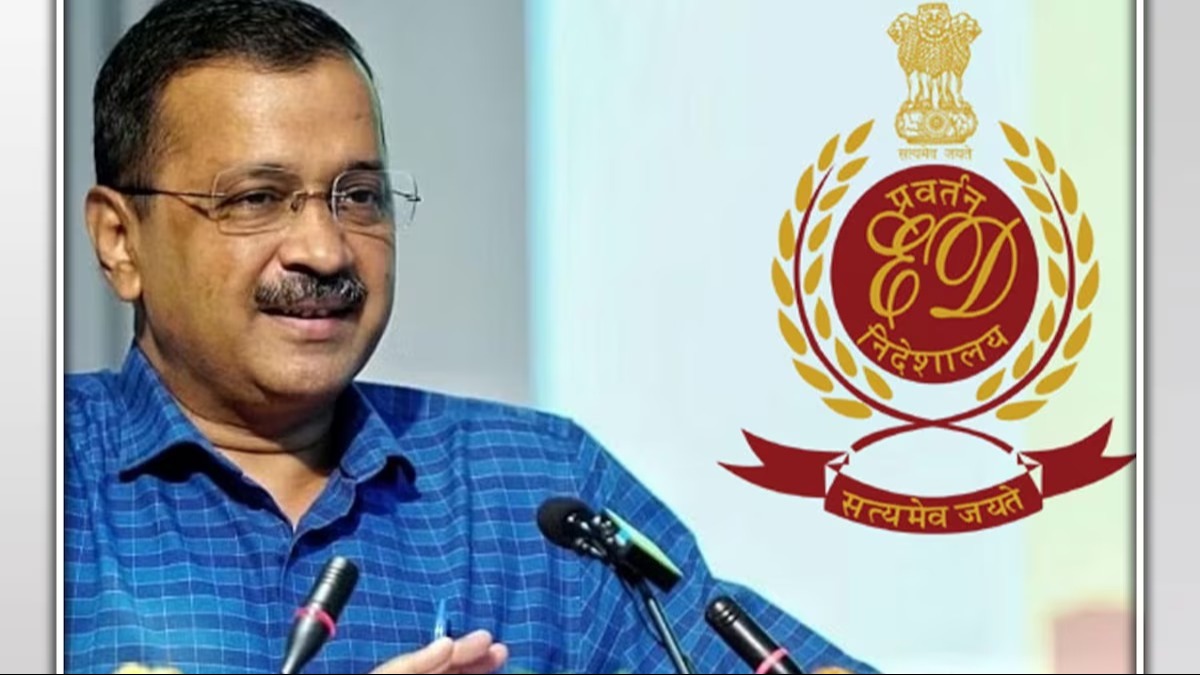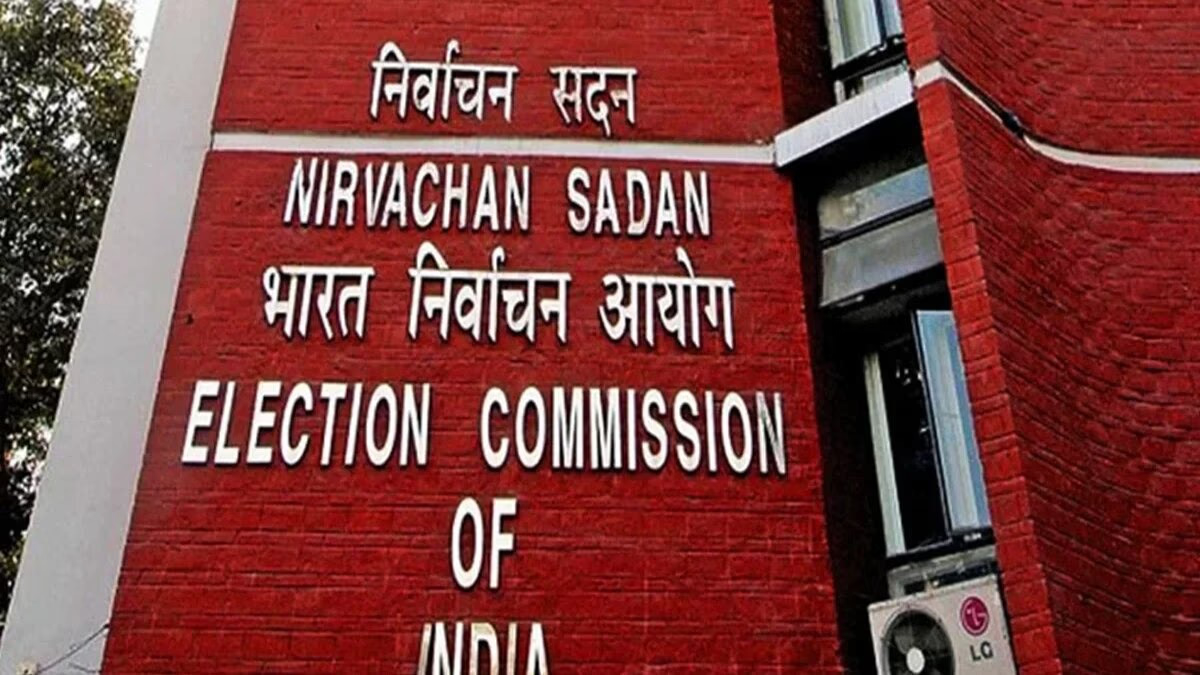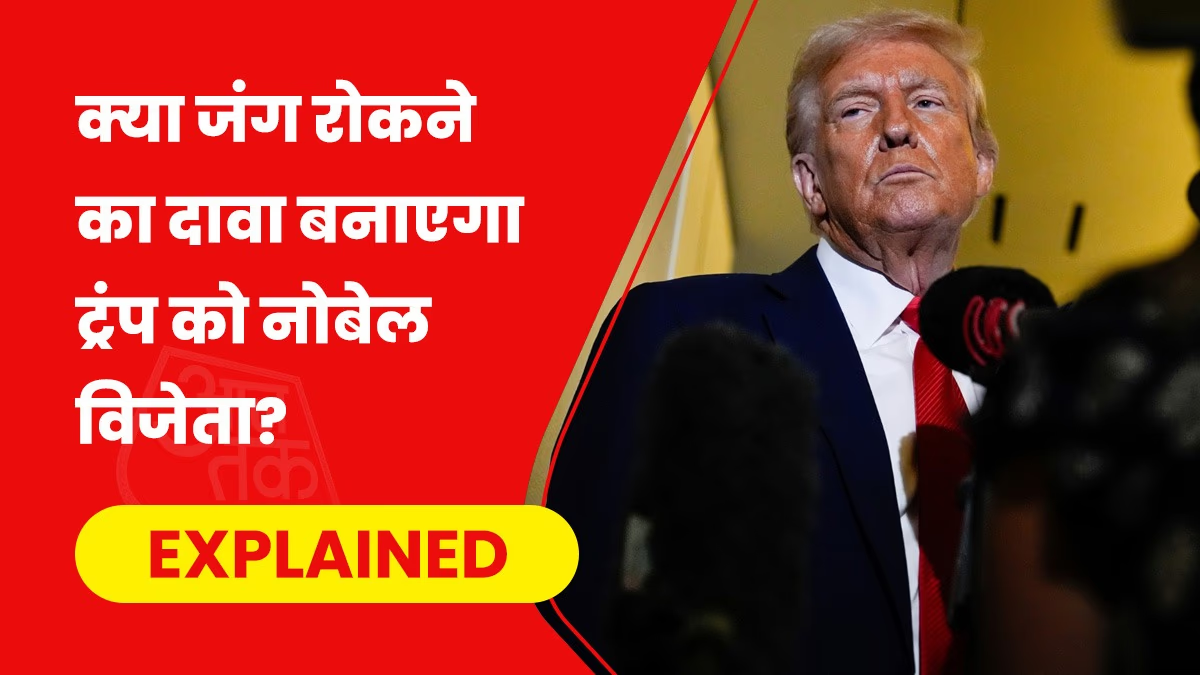First Hemant Soren and now Arvind Kejriwal... Within 50 days, two state Chief Ministers find themselves in the clutches of the Enforcement Directorate, or ED, on accusations of money laundering. While Soren is currently in ED's custody, Kejriwal will remain on ED's remand till March 28.
However, just before his arrest, Hemant Soren had resigned from the role of Jharkhand's Chief Minister, whereas Kejriwal continues to serve as Delhi's Chief Minister. Thus, Kejriwal becomes the first serving Chief Minister to be arrested.
Hemant Soren was apprehended over a land scam in Ranchi, and Kejriwal over a supposed liquor scandal in Delhi.
The ED has its grip on several influential politicians. Just last week, in connection with this very liquor scandal, K. Kavitha was also arrested. Kavitha is not only the daughter of Telangana's former Chief Minister KCR but also a member of the legislative council for Bharat Rashtra Samithi (BRS).
Previously in the same year, ED arrested former Deputy Chief Minister of Delhi Manish Sisodia in connection with the scandal. In October, Aam Aadmi Party's Rajya Sabha MP Sanjay Singh was also taken into custody by the ED.
How has the ED become so powerful?
The Foreign Exchange Regulation Act (FERA) was enacted in 1947, and under its provisions, the ED was established on May 1, 1956. Initially known as the Enforcement Unit, it was later renamed Enforcement Directorate.
In the beginning, the ED was primarily tasked with scrutinizing the transactions of individuals operating within the foreign exchange markets. The introduction of laws such as PMLA, FEMA, and FEOA saw a gradual increase in ED's powers.
Until 2012, ED could only investigate money laundering cases involving sums over 30 lakh. After an amendment in 2013, this threshold was abolished.
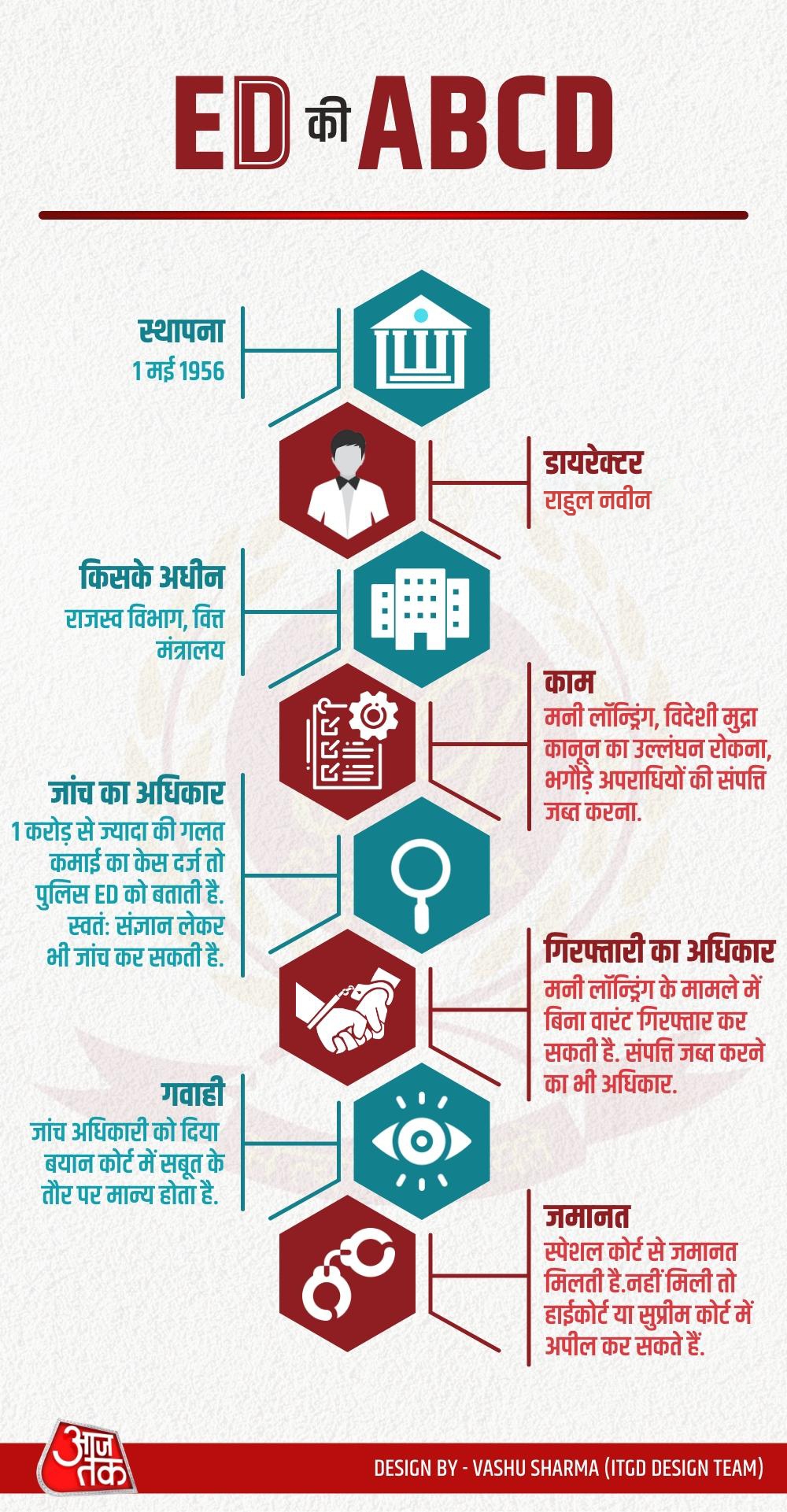
Source: aajtak
The Biggest Change Yet
While the ED's scope under the UPA government expanded, the Modi government further fortified it. In 2019, the central government amended the Prevention of Money Laundering Act (PMLA).
The amendments to sections 17(1) and 18 of the PMLA granted the ED authority to conduct raids, search operations, and arrests within legal boundaries.
A new section, 45, was also incorporated, empowering the ED to arrest individuals without a warrant. Additionally, the ED is not required to disclose the reason for summoning an individual. Furthermore, statements made before the ED are admissible in court as evidence, which differs from other cases where a statement is only valid if recorded before a magistrate.
While other investigative agencies are required to provide a copy of the FIR to the accused upon request, this is not mandated in money laundering cases under the PMLA.
The law places the onus on the accused to prove their innocence, a provision that often complicates the process of obtaining bail.
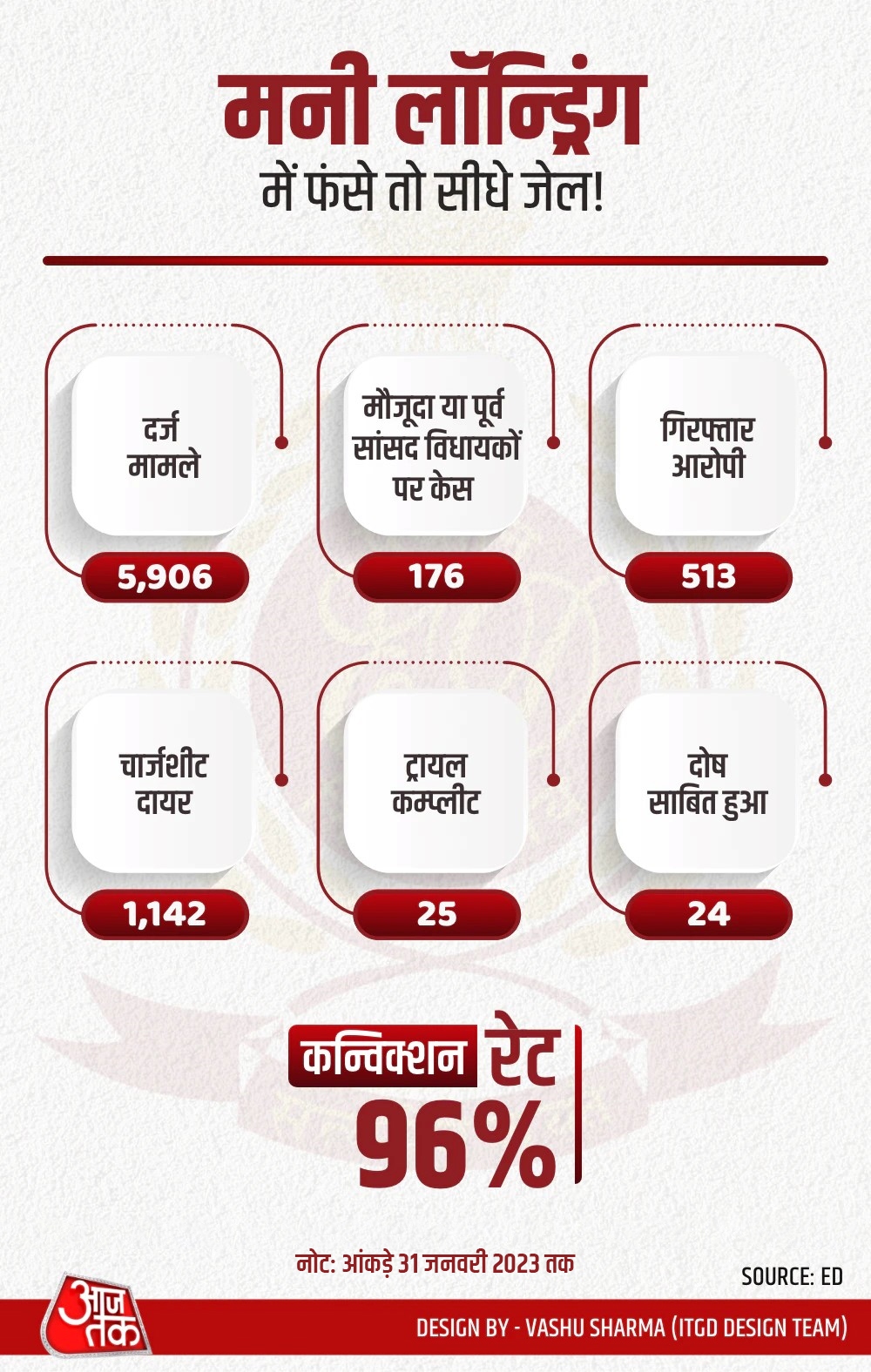
Source: aajtak
Supreme Court's Seal of Approval on ED's Power
In August 2022, the Supreme Court's decision affirmed ED as one of the nation's most formidable agencies. A bench led by Justices A.M. Khanwilkar, Dinesh Maheshwari, and C.T. Ravi Kumar issued a 545-page ruling.
The trio of judges upheld the ED's rights to investigate money laundering, conduct raids, record statements, make arrests, and issue summons.
The Supreme Court also ruled that if the ED arrests someone, it is not mandatory to provide a copy of the ECIR (Enforcement Case Information Report); simply stating the reasons is sufficient.
ED's Threefold Mandate
First,
to investigate and seize properties accumulated through monetary manipulation.
Second,
to prevent violations of foreign exchange laws.
Third,
to tighten the noose on fugitive criminals by seizing their properties in foreign territories.
The Influence Ensnared by ED!
The ED's net captures a wide array of individuals including politicians, bureaucrats, business houses, corporations, and foreign nationals. These cases predominantly involve money laundering probes.
In the Delhi's presumed liquor scam, the ED has already executed four major arrests. Aside from Chief Minister Arvind Kejriwal, the list includes former Deputy CM Manish Sisodia, Rajya Sabha MP Sanjay Singh of the AAP, and K. Kavitha, daughter of the former Telangana Chief Minister KCR.
In August 2022, the ED interrogated Sonia Gandhi and Rahul Gandhi, leaders of the Congress party, for hours in relation to the National Herald case. The list further includes NCP leader Nawab Malik and Shiv Sena MP Sanjay Raut from the Uddhav Thackeray faction in Maharashtra, among others, all under ED's scrutiny.
Earlier this year, on January 31, ED also detained former Jharkhand CM Hemant Soren. His arrest came shortly after his resignation and was linked to a purported land scam.
Bihar's former Deputy CM Tejashwi Yadav is also under ED's radar, having been questioned in the land for job scam. Karnataka's deputy CM D.K. Shivakumar is another name embroiled with the ED.
Last year, ED raided several ministers from DMK government in Tamil Nadu, including Minister Senthil Balaji, who was also arrested. Chhattisgarh's ex-CM Bhupesh Baghel is caught up in the Mahadev betting app case.
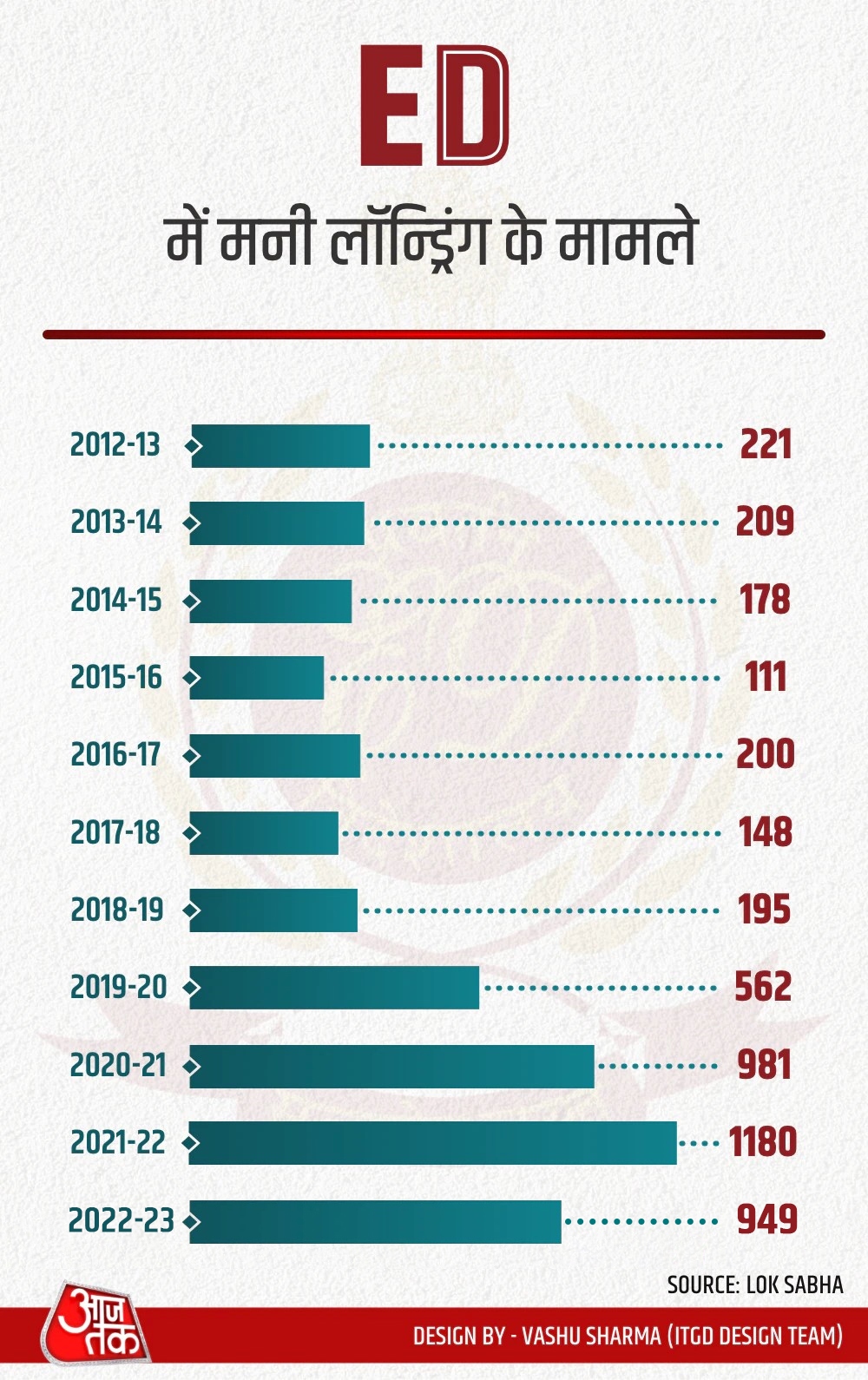
Source: aajtak
Money Laundering Conviction Rate
According to the ED's website, since the enactment of the anti-money laundering law, 5,906 cases have been registered up to January 31, 2023. Of these, 176 cases, or 2.98%, are against current or former MPs, MLAs, and MLCs.
ED revealed that among these, charge sheets have been filed in 1,142 cases, while 513 individuals have been arrested. With 25 cases completed, 24 resulted in convictions, and only one ended in acquittal, representing a 96% conviction rate for money laundering cases.
Data on the ED's website indicates that under the anti-money laundering law, 1,919 freezing orders have been issued, seizing assets worth a total of ₹1,15,350 crores.
